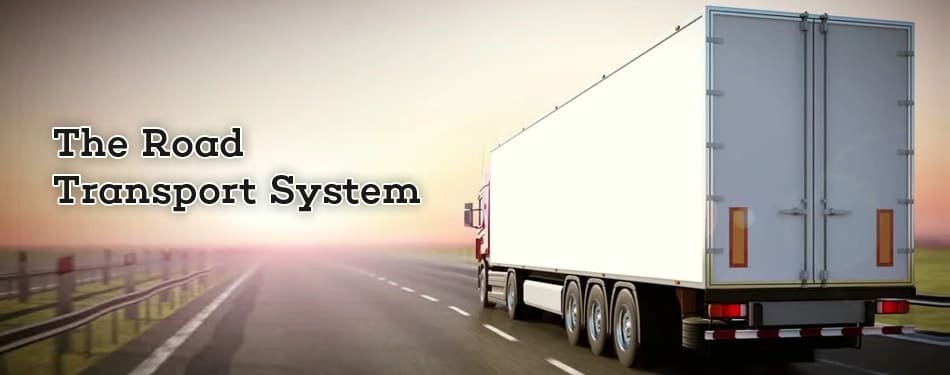
The Road Transport System: Benefits and Drawbacks
Road haulage is a critical component of the logistics industry, providing essential services that span across nations and even globally. From small delivery vans to large road trains, road transport systems are integral to the movement of goods, offering a range of benefits and challenges that make them unique in the broader logistics landscape.
At Milky Way Logistics, we understand the importance of over-land transportation in the supply chain. Whether it’s delivering a small parcel to a rural area or transporting a full truckload across the country, road haulage offers unparalleled flexibility and reach. However, like any other mode of transport, it comes with its own set of advantages and disadvantages. In this blog, we’ll explore the key benefits and drawbacks of road transport and how these impact the logistics industry.
The Flexibility and Mobility of Road Transport
One of the most significant advantages of road transport is its mobility and flexibility. Unlike rail, air, or sea transport, road haulage can reach destinations that are far from major transportation hubs, making it ideal for door-to-door deliveries. The ability to directly deliver goods to the customer’s doorstep, no matter how remote, is a unique feature that sets land transport apart from other modes.
Additionally, road haulage vehicles can be adapted to carry a wide range of goods. Whether it’s an exchange body that can be moved to another method of transport like sea or air, or a fixed load that remains on the vehicle, road transport can handle it all. This adaptability makes it a versatile choice for many logistics needs.
Safety and Control in Road Transport
Another key benefit of road transportation is the level of control it offers over the goods being transported. With a driver always involved, there’s a continuous human presence to monitor the condition of the goods, ensure their safety, and respond quickly to any issues that may arise. This personal oversight is particularly valuable for transporting fragile or high-value items.
The capacity of road transport is also highly flexible, ranging from small packages to full truckloads. This flexibility allows for efficient use of transport resources, optimizing costs and reducing the need for multiple shipments. However, the capacity is ultimately limited by the vehicle’s load-carrying ability and the road infrastructure’s capacity to support heavy loads.
The Cost-Effectiveness of Road Transport
Road transport is often one of the most cost-effective methods of moving goods, particularly over short distances. The initial capital expenditure for road haulage is relatively low compared to other modes, such as air or rail transport, making it an accessible option for many businesses. Additionally, the cost savings extend to reduced packaging requirements, as road haulage generally involves less handling of goods compared to other methods, which can lead to less damage and lower packaging costs.
Moreover, the speed of road haulage, especially over short distances, is typically faster than other modes. This rapid response time is crucial in today’s fast-paced logistics environment, where customers expect quick delivery times.
Road Transport as a Feeder System
Road haulage also plays a vital role as a feeder system to other modes of transport. For instance, goods may be transported by road to a railway station, port, or airport for further distribution. This intermodal transport capability enhances the efficiency of the entire supply chain, allowing for seamless transitions between different types of transport.
Challenges and Drawbacks of Road Transport
Despite its many advantages, road haulage is not without its challenges. One of the primary drawbacks is the potential for breakdowns and accidents. The reliance on drivers and vehicles means that mechanical failures, human error, and adverse weather conditions can all lead to delays and increased costs.
Seasonality is another significant challenge. During periods of heavy rain or flooding, roads can become impassable, disrupting the transport of goods. This seasonal nature of road haulage can be a major limitation in regions prone to extreme weather conditions.
Additionally, over-land transportation is generally slower compared to air or rail transportation, especially over long distances. While it excels in short-haul deliveries, it may not be the most efficient choice for transporting goods across vast regions or internationally.
Traffic congestion is another critical issue that affects road haulage, particularly in urban areas. As cities grow and traffic volumes increase, delays caused by traffic jams can significantly impact delivery times and increase fuel consumption, leading to higher operational costs.
Finally, the road haulage sector often lacks the level of organization seen in other modes of transport. With a multitude of independent operators, varying standards of service, and inconsistent regulations across regions, road transport can be less predictable and harder to manage efficiently.
Conclusion
Land transport remains a cornerstone of the logistics industry, offering unmatched flexibility, cost-effectiveness, and reach. However, it also comes with challenges that need to be carefully managed to optimize its benefits. At Milky Way Logistics, we leverage the strengths of road transportation while mitigating its drawbacks through strategic planning, advanced technology, and a commitment to quality service. Whether you’re looking to transport goods across town or across the country, road transport provides a reliable solution that meets the diverse needs of today’s logistics environment.






